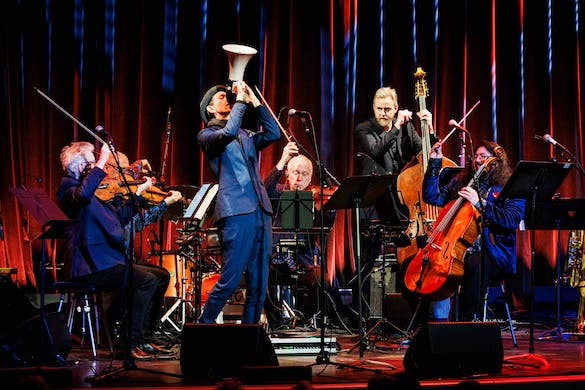
Can Trump ‘Nationalize’ Elections?
By THE NEW YORK SUN
|It makes sense that it would take at least two distinct, brand-name ensembles as well as an ambitious roster of guest performers and vocalists to tackle Moondog’s music.

Already have a subscription? Sign in to continue reading
$0.01/day for 60 days
Cancel anytime
By continuing you agree to our Privacy Policy and Terms of Service.
By BRADLEY CORTRIGHT
|